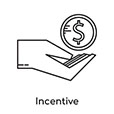With effect from 1 April 2020, the government will be providing a once-off $10,000 SFEC credit to encourage companies to further develop their capabilities and to boost their workers’ skills sets. This credit will be used to defray up to 90% of such out-of-pocket expenses.
SKILLS FUTURE ENTERPRISE CREDIT (SFEC)
UPDATE: BUDGET ANNOUNCEMENT 2022
SFEC has been extended to cover qualifying periods FROM 1 Jan to 31 Dec 2021.
Employers who have met the following conditions from 1 Jan to 31 Dec 2021 may use their SFEC for supportable programmes on or after 1 April 2022.
- Have employed at least three Singapore Citizens (SCs) or Permanent Residents (PRs) every month over the qualifying period; and
- Have not been previously qualified for SFEC; and
- Are not in default of their SDL contributions during the qualifying period and do not have an inactive ACRA status during qualification.
Claims must be submitted by 30 June 2024.
HOW TO USE?
The $10,000 credit can be used for the following 2 categories:
1. Enterprise Transformation (Only up to $7,000 of credit can be used)
- Productivity Solutions Grant (PSG)
- Enterprise Development Grant (EDG)
- Market Readiness Assistance (MRA)
Companies that have successfully received partial funding through the above programmes, can further claim up to 90% of the unfunded portion. However, only a maximum of $7,000 SFEC credit can be used under this category.
Case Example
Company ABC received approval for their PSG application to implement an accounting system. The package price is $5,527. After getting 70% funding from PSG, Company ABC can still further claim up to 90% of the balance unfunded cost through SFEC. With both the subsidies, Company ABC bears only $165.81 for a full cloud accounting software worth over $5,500!
| Package Price for Xero | $ 5,527.00 |
| Less 70% funding from PSG | $ (3,868.90) |
| Balance unfunded | $ 1,658.10 |
| Less 90% funding from SFEC | $ (1,492.29) |
| Balance payable | $ 165.81 |
** If E-Invoice Registration Subsidy is applicable, companies can further claim another $200 to offset the full cost of the system.
2. Workforce Transformation – full sum of up to $10,000 can be used
- Skills Framework-Aligned Courses
- Professional Conversion Programme (PCP)
- Place-and-Train Programmes
Similarly, companies with employees who have undergone the above training programmes can also further claim up to 90% of the unsupported course fees. The full SFEC credit of $10,000 can be used under this category.
Case Example
Company XYZ sent one of their employees for a 2-day Digital Marketing course under the Skills Framework. The original course fee was $480. Under the Skills Development funding, a $25 funding would be provided for every hour of training. After getting this funding, Company XYZ can still further claim up to 90% of the balance unfunded course fee through SFEC. Eventually, Company XYZ only needs to pay $8 for every employee sent for this training!
| Course Fee | $ 480.00 |
| Less Skills Devt funding ($25x16hrs) | $ 400.00 |
| Balance unfunded | $ 80.00 |
| Less 90% funding from SFEC | $ 72.00 |
| Balance payable | $ 8.00 |
WHO IS ELIGIBLE?
To be eligible for SFEC, companies must fulfil the following 3 conditions:
- Have at least 30% local equity
- Have contributed at least $750 Skills Development Levy (SDL) in the preceding 12 months prior to application (around 5 ~ 10 employees depending on the monthly salary)
- Have employed at least 3 SC/PR in each of the preceding 12 months prior to application
Core Capabilities
Innovation and Productivity
Market Access
*Note: As of 1 April 2020, all applications for EDG should include commitment to worker outcomes as part of the qualifying requirements. This will include wage increment, job creation, job redesigns or training for existing staff.
WHAT CAN BE SUPPORTED?
Qualifying project cost that is related to software and equipment, third party consultancy and internal manpower can be supported. As announced during the Supplementary Budget 2020, for the period 1 April 2020 to 31 December 2020, the maximum level of support will be enhanced to 80%. For businesses that have been very badly affected by the COVID-19 pandemic, the maximum level of support may even be raised to 90%, depending on a case-by-case review.
WHO IS ELIGIBLE?
To qualify for EDG, companies must fulfil the following conditions: -Be registered and operating in Singapore -Have a minimum 30% local shareholding with Company’s Group annual sales turnover less than S$100 million, OR less than 200 employees -Be in a financially viable position to start and complete a project Should you require more information on the application process for the Enterprise Development Grant, please contact Woon at 9824 1643 or email woon@361dc.com.
THE WORK-LIFE GRANT COMPRISES 2 COMPONENTS:

1. FWA Incentives (Up to S$70,000)

2. Job Sharing Incentives for PMETs (Up to S$35,000)
FAQS
Yes, all entities regardless of local or foreign equity, are able to apply for the grant as long as local staff are employed.
Management personnel with names listed on the company’s ACRA Bizfile are not eligible to be included as employees.
Yes, as there is no minimum number of employees required to apply for the grant. The funding will still be available for a single local employee who has adopted FWA.
Based on past experiences, Worklife Grant applications usually need an average of 6 months to receive approvals. However, due to the Covid-19 pandemic, the authorities are working towards expediting the approvals so as to encourage more telecommuting to take place.
Yes, there is no minimum salary required for the employee to be eligible. However, the salary must be of a reasonable rate and is justifiable.
Unfortunately, related entities can only submit one application for a selected company. Entities with common resources such as having the same Directors, sharing a common HR/Finance function, using the same registered address etc, can only submit one application.
Yes, you can start to implement the flexible work arrangements after receiving the approval for the grant application. The Worklife Grant is open to all companies which have either existing flexible work arrangements or are proposing to introduce new ones in the near future.
Yes, we do. We have a long track record of clients who have successfully blended flexible work into their workplace culture through the Worklife Grant. Our surveys have also revealed that the employees are happier and more motivated at work after the changes, and the overall productivity levels have improved too.